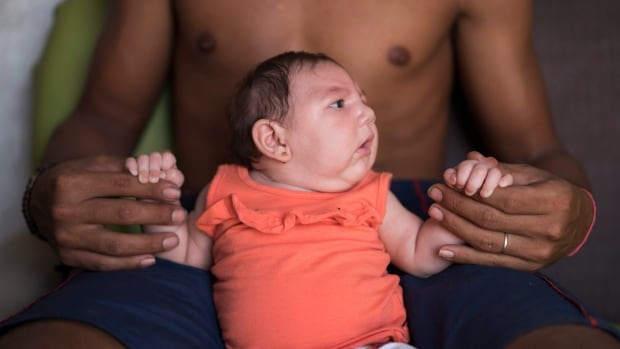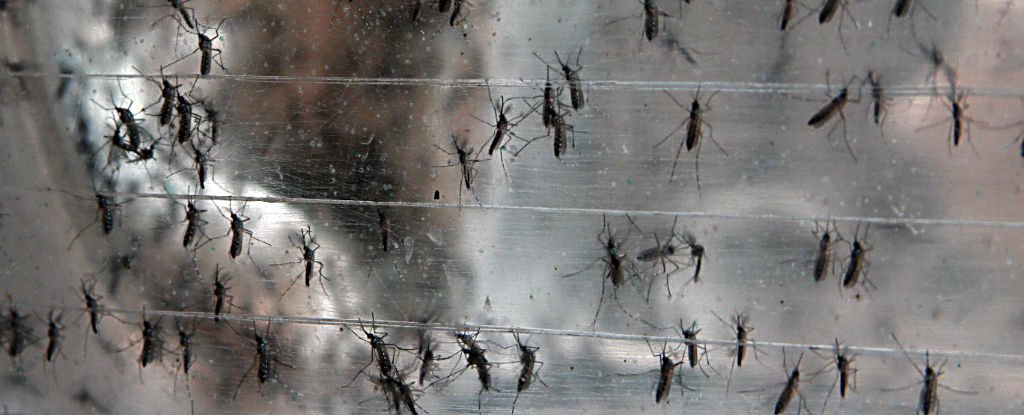Spreading Mosquito Habitats
"Why this may have happened in Brazil and not elsewhere is at this stage difficult to answer. Perhaps it was never properly registered in other areas, or the situation in Brazil is indeed different."
Alain Kohl, virologist, University of Glasgow
"I cried for a month when I learned how God is testing us."
"I had never heard of Zika or microcephaly. Now I just pray that my daughter can endure life with this misfortune."
Gleyse Kelly da Silva, 27, Recife, northeast Brazil
"The health minister, a politician dedicated to the business of ranching, has a profile that's the opposite of what's required to lead the effort to deal with microcephaly."
Ligia Bahia, specialist, public health system, Brazil
"The mosquito is exquisitely adapted to human hosts, living in close proximity to humans and feeding repeatedly."
Maria Diuk-Wasser, entomology, zoology, parasitology expert, Columbia University, New York
 |
|
Brazilian health authorities are convinced that Luiza's
microcephaly condition is related to the Zika virus that infected her
mother during pregnancy. (Felipe Dana/Associated Press)
|
It is being held to blame for the massive increase in brain-damaged babies born in the country. Not that other countries haven't been affected, since the Zika virus is spreading, and has reached a number of other countries, Mexico included. The hypothesis is that the Zika virus arrived in the country at a time when Brazil was heartily welcoming travellers from around the world attending the 2014 World Cup.
On the other hand, venture others, a canoe race that was held just weeks after the World Cup might have hosted the vector now so feared and ravaging the country's newborns. Paddlers from French Polynesia had arrived in Rio de Janeiro to take part in the canoe race possibly bringing with them, it is felt, the mosquito that carries Zika while it was wreaking its damage in Polynesia.
What researchers do appear to agree with is that the swift spread in Brazil is a reflection of the ease with which viruses are spreading from place to place on the globe. Last year, the virus was confirmed in Brazil, Panama, Venezuela, El Salvador, Mexico, Suriname, the Dominican Republic, Colombia, Guatemala and Paraguay, according to public health officials. A Canadian returning from a visit to Brazil was recently diagnosed as having been bitten by Aedes and brought the Zika virus back with him to British Columbia.
It has long been known that vermin native only to one area of the world have been spreading as a result of global warming; where at one time northern climates' severe winters might have killed certain pests, some like the beetle infestations that have been decimating forests in North America are now able to withstand the less severe cold with the advent of global warming, and are steadily spreading north.
A deadly dengue epidemic had been monopolizing the attention of health scientists in Brazil even before the approach of Zika. And it is the same mosquito that transmits that virus. There were close to 1.6-million cases of dengue in 2015, up from 569,000 in 2014, estimated the country's Health Ministry. Of that number, 839 people died of dengue last year, representing an 80 percent increase over the year before.
When a Zika outbreak was identified in May in northeast Brazil the then-health minister confidently advised: "Zika virus doesn't worry us"; it was, he stated, a "benign disease". That 'benign disease' has caused thousands of babies to be born with microcephaly, a rare and incurable condition. Of the 2,782 cases registered last year, 40 of the infants have died while those who survive are expected to be intellectually impaired.
"Before the explosion of cases since mid-2015, Brazil had an average 150 cases of microcephaly a year. Today I can tell you that we have 100% certainty of the connection of the Zika virus with increasing cases of microcephaly in Brazil."
Marcelo Castro, Brazil’s health minister

Labels: Brazil, Disease, Environment, Health, Nature

0 Comments:
Post a Comment
<< Home